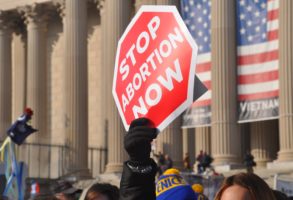
Published December 4, 2017
National Review - November 27, 2017 issue
A year after his election to the presidency, Donald Trump remains in many ways an enigma. Everyone observing our politics, or serving in it, still has the sense that anything could happen at the White House at any time. But neither the most hopeful nor the most fearful prognostications about the effects of Trump’s presidency on our political system have been confirmed.
Those who dreamed that Trump would be a populist Machiavellian, ingeniously reviving our system of government by breaking through our hackneyed partisan categories, have certainly been disappointed so far. It would be hard now to claim that the surface appearance of reckless incompetence at the White House is just a mask for deep strategic genius. Yet, in part for that very reason, those who feared that Trump would usher in an autocracy — assaulting our constitutional system and trampling our freedoms — have also been proven wrong so far. Trump not only couldn’t pull off any such assault, he shows no serious sign of wanting to.
In fact, the excessive hope and the excessive fear of Trump might have an error in common, one that has to do precisely with a way of thinking about what he wants. Both begin from the assumption that Trump ran for president in order to use the presidency to achieve a set of relatively conventional political or policy objectives, and each approach formed its expectations around some sense of what those might have been. Ten months into his presidency, it does not look as if this was the nature of Trump’s ambition.
Instead, his ambition seems to have been something like a desire to put himself at the center of our national consciousness and attention. This looks to be what Trump wants most, and what some of his most peculiar choices and actions are directed toward achieving. Everything else — from policy priorities to political alliances — is always subject to change in pursuit of that goal. This could also be a key to understanding the effects Trump might ultimately have on our constitutional system.
To say that Trump thinks of his role in terms of elevating himself in our consciousness (or maybe just being on our minds) is of course in part to suggest he has an oversized ego. No one could deny that he does. But although his self-regard might be gargantuan, this is actually the element of Trump’s ambition that most resembles the ambitions of many other politicians. Trump may well be no more arrogant than Barack Obama or many other past presidents. And surely everyone who runs for president runs at least in part to be something — indeed, to be the most famous man or woman in the world.
But they also, of course, run to do something. Trump wants to do something too, but how he understands and pursues that desire might be what makes his particular ambition most distinctive.
A politician seeking high office naturally thinks about how to be something by doing something — how to use his office to advance his aims and therefore also to be popular. The framers of our Constitution understood that ambition would work this way, and for that matter that the desire for fame and renown would speak powerfully to would-be leaders. They designed the system to channel this desire in various ways in the service of American self-government.
The ambitions of our presidents have generally been routed accordingly — driving them to work either through the system as it was conceived or against it in ways highly cognizant of (if frustrated with) its structure. Obama, for instance, routinely exceeded the bounds of presidential power, but he did it by seizing the powers of the legislative branch or by doing more than the system permits of the sorts of things it would have presidents do.
Trump’s exertions in office have mostly been of a different sort altogether. They have generally been neither channeled through the constitutional framework nor directed against it, so that even nearly a year into his term his ambition has barely been shaped at all by the imperatives of constitutionalism.
Every one of our past presidents has been formed by a set of institutions — as either a senior military officer or (much more commonly) a government official serving in other offices — that have shaped his understanding of how to act effectively as the head of the executive branch. Donald Trump is the first American president who has not been shaped by any experience in such institutions. His life experience has involved running a family business in real estate and then becoming a performer essentially playing the part of a successful real-estate developer in American popular culture. He entered politics as another performance in that role and was elevated to the presidency thanks to his great success in that performance. These two sets of experiences appear to have shaped his understanding of the presidency.
This means he entered the office with an extraordinarily thin grasp of its character, its limits, and its relation to the rest of our constitutional system. And he indeed seems to approach the presidency as just the grandest stage yet for the performance of his lifetime.
This approach is certainly not devoid of public-spiritedness. Trump clearly loves his country, and he believes he has a lot to offer it. But he seems not to have a developed sense of what it would mean to offer it something as president. Presidential leadership in America is a peculiarly complicated task shaped by an unusual combination of institutional roles, and Trump appears even now to be largely unaware of its contours — identifying the office with himself and its purpose with his distinct approach to politics. He tends to think of the president not as a constitutional officer in constant, tense engagement with others but as either a general contractor overseeing a vast project or a kind of tribune performatively amplifying public sentiments.
The ideal of the president as project manager was especially prominent in how Trump spoke about his ambitions at the very beginning of his campaign. In August 2015, for instance, asked by George Stephanopoulos how he would carry out his immigration proposals, Trump responded, “These people don’t know what they’re doing, George. They’re politicians. They don’t know management. I get the best people and we will do it properly and we will do it humanely.” Asked three months later to respond to criticism from his primary opponents about his proposal for a registry of Muslims, he responded, “It would be just good management.” Pressed for more details, he said, “It’s all about management, our country has no management.” We have grown so accustomed to this sort of vague, brash talk from Trump over the past two years that we barely stop to ask what it actually conveys.
As his campaign proceeded and he linked up with speechwriters and advisers of a more coherent nationalist bent, some of this kind of rhetoric came to be focused through an America-first lens. But at his core, Trump still seems to believe that he has unique management abilities to offer the country and that this job is like his last one. Perhaps ironically, given his now-infamous lack of discipline, his sense of the president’s core administrative function remains exceptionally managerial — and not, in this sense, quite political or constitutional. He instinctively treats members of Congress like incompetent subcontractors.
Trump’s sense of the president’s broader functions, meanwhile, has turned out to be fundamentally theatrical. In just about every setting, he is performing for an audience. Thus his obsession with ratings and audience size, his running commentary on Twitter (often calling for actions that he could instead just undertake as chief executive), and his peculiar tendency even to comment on his own speeches as he delivers them.
And thus, more important, his intense desire to please the room at every moment — which has led him incessantly to shift course and change positions. He seems to want different things at different times in front of different audiences. But he actually always wants the same thing: He wants to be acclaimed a winner. When he isn’t depicted as successful, whether it’s on morning television or in a meeting with congressional leaders, he says and does whatever seems required to change the story in his favor. He can’t resist such provocations because he is always on the stage, needing to please or save face before the crowd.
This has left President Trump open to shameless attempts at manipulation by members of Congress and his own administration who think they can push him in their direction on key policy questions by portraying their preferred approach as a way for him to look stronger. These efforts are sometimes successful, but generally not for long. Positions Trump is manipulated into adopting are as transient as those he takes up on his own, lasting only for the current scene of the drama.
Such efforts to exploit Trump’s peculiar approach to the presidency are in the end mostly expressions of the far-reaching confusion about his ambitions and priorities that still grips Washington. Thinking about Trump in the context of the constitutional system might help us more clearly articulate the sources of that confusion.
Trump’s role in the operation of our system of government may be understood in terms of an absence and a presence: He has left largely unfilled the part traditionally played by the president while playing this other, different part formed around the peculiar contours of his experience and personality. Everyone else charged with key roles in our system has to confront the implications (good and bad) of this unusual situation.
The absence of a strong executive on the model that has dominated American politics for well over a century presents some opportunities, of course. Above all, it could open up some space for Congress to assert itself — if only Congress wanted to. The presence of a brash populist entertainer in the White House could have a bright side, too. Trump’s capacity to disrupt our exhausted political order and force other politicians into at least modestly more populist directions could well prove a boon.
But there are plainly dark sides. The absence of an executive eager to work within our system could easily unbalance our constitutional order and leave it hapless and inept. And the presence of an undisciplined, aggressive performance artist at the heart of our government — a figure whose excesses are not structurally counterbalanced by others in the system because they are not strictly speaking excesses of presidential power — could alter the public’s expectations of government and politics in ways that are decidedly unhelpful to American constitutionalism and would not be easy to reverse. Viewing politics as entertainment could be a hard habit to break.
So far, Trump’s absence and Trump’s presence have mostly resulted in chaos. Washington has experienced the Trump presidency so far as an exhausting, intense, and unproductive circus. The chaos has been paralyzing both for Republicans in Congress (who seem sapped of any of the necessary will to use this period as an opportunity to reassert legislative prerogatives) and for Trump’s executive-branch appointees. Both seem to have been incapacitated by concerns that anything meaningful they do could be undercut by an erratic presidential tweet at any moment.
The appointment of judges might be the one presidential function that does not require perseverance — once nominated, they are confirmed by another branch of government and then perform their work without dependence on the president — and so is the one arena where Republicans can point to real achievements so far. Beyond that, little has been accomplished in ten months, and it is frankly hard to say just what the president actually aims to achieve except for being on everyone’s mind all the time.
This makes Trump neither a brilliant savior of self-government nor a malignant autocrat. But it does make him a threat to American constitutionalism. For many decades now, American progressives have advanced an ideal of the presidency in great tension with the logic of our broader constitutional architecture. Trump now offers a far less coherent model of the presidency that is downright unaware of that broader architecture and so stands as a kind of histrionic alternative to constitutional politics. If we are to hold out any hope for a constitutional restoration, these cannot be the only options before the public.
Yuval Levin is the Hertog Fellow at the Ethics and Public Policy Center.








